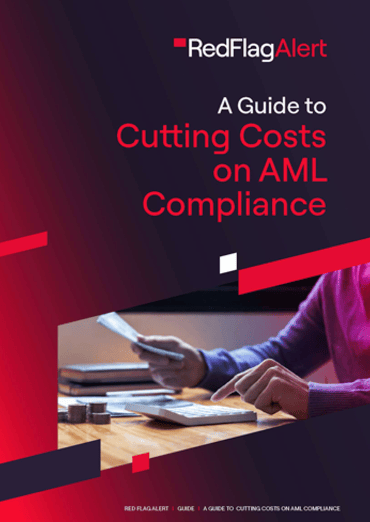The soaring cost of AML compliance has caused many businesses to review their current strategy and seek ways to reduce expenditure, or at least slow the growth of the budget necessary to stay compliant and meet current regulations.
While some of these costs are necessary for combatting the significant issue of money laundering and financial crime, others don’t agree which is why reducing costs is a key priority for many businesses.
In this beginner’s guide we explain what compliance costs are, why they are increasing rapidly, and how to stifle the rising cost of compliance for your organisation.
What are compliance costs?
The term compliance costs can refer to a wide range of elements, all of which fall under the compliance umbrella, and therefore also under the compliance budget. These costs can include recruitment, staffing costs such as salaries and contributions, compliance technology such as AML KYC platforms, employee training, consultancy fees, administration and reporting costs, and the costs and fines of non-compliance. These compliance costs can quickly add up, though the costs of non-compliance may outstrip them many times over.
Why is the cost of compliance increasing sharply?
Regulatory change has increased since the start of the pandemic and moving into 2022 it is widely expected that this trend will continue, along with the need for a long-term plan to cater for an increased number of remote and hybrid workers. Fear of non-compliance is also driving costs up, as businesses do all they can to avoid the reputational harm of money-laundering allegations and the fines associated with convictions. Each time there are regulatory changes, businesses incur costs associated with implementation too with estimations suggesting that 5AMLD implementation alone cost the average UK financial institution £75,000.
Changes require more staff to manage compliance, more compliance training for employees, and an increased budget to maintain new compliance practices.
How to reduce compliance costs in your business
As compliance requirements continue to expand and grow, businesses are looking for new ways to cut costs without compromising on performance or weaken their compliance processes.
Review current processes
Review current systems and processes to uncover any lags or inefficiencies which could be improved. Using technology can further improve processes and often companies who implement tech report lower costs than employee-focused companies. Looking at where you can streamline implementation processes associated with regulatory changes can help too.
Upskill your employees
Reduce risk of non-compliance and help your employees work more efficiently by offering regular compliance training and ensuring they feel confident in staying compliant. While this may mean a larger outlay at the start, in the long term it helps to keep your business compliant and running smoothly while minimising risk.
Use AML compliance technology
One of the largest cost cutting endeavours in compliance is the adoption of business data tools which can carry out a range of compliance tasks in seconds and remove the risk of human error.
The desire to work smarter, not harder in the compliance industry has led to significant new developments in compliance technology, particularly in reference to AML and KYC platforms.
While many companies seek to employ an increased number of compliance staff to manage their processes and ensure adherence, others are automating key processes and procedures to streamline their systems without compromising on quality.
This allows key compliance staff to automate a number of key tasks and free up time to work on tasks which require a human element. Compliance checks such as AML and KYC checks, onboarding checks and client verification, plus compliance workflows and audit trails can be automated quickly and easily with full confidence.
Find out more about cutting compliance costs in your organisation
In this beginner’s guide we’ve given an overview of what compliance costs are, why they are increasing, and what you can do to help reduce them.
Download our complete guide to cutting compliance costs to discover hands-on ways to cut your AML compliance costs, what compliance regulations to expect in 2022, and more tips on how to reduce compliance costs in your business.
Learn more about how Red Flag Alert helps you protect your business from financial risk and comply with regulations, why not Try Red Flag Alert today? Or read our guide to cutting AML costs





